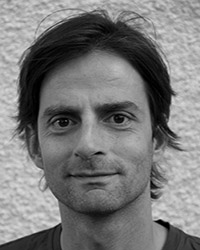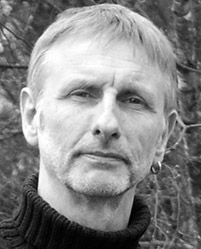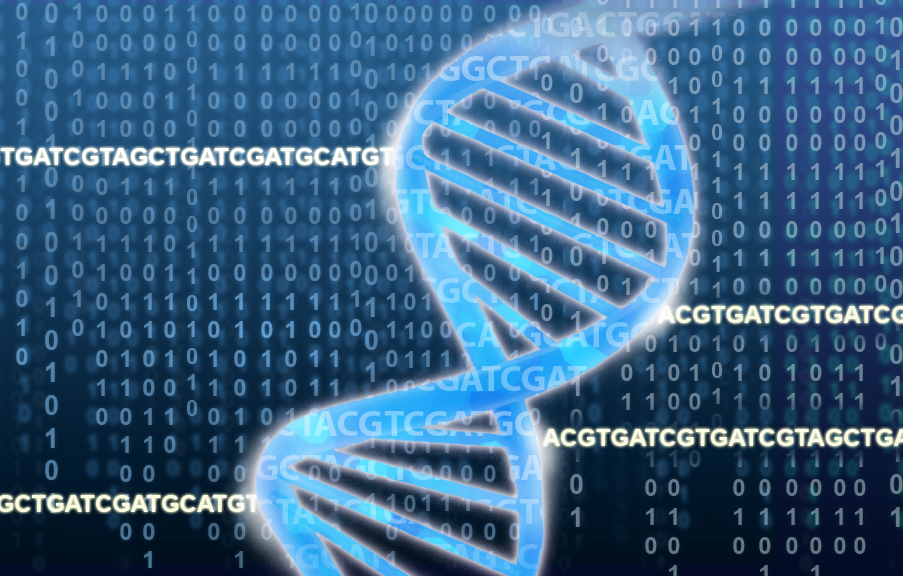inGENEious DNA - the future of data storage?
inGENEious DNA - the future of data storage?
| Angeboten von: | Dr. Heiner Busch, Dr. Arman Vinck, Prof. Dr. Benedikt Kost | ||
| Anbietende Hochschule: | Uni Erlangen-Nürnberg (FAU) | ||
| Kurssprache: | Englisch | ||
| Wissensgebiet: | Naturwissenschaften | Kostenfrei | |
| Durchschnittliche Bearbeitungszeit: | 15 Stunden | Kostenfrei | Einschreiben |
| Bildnachweis: Heiner Busch | |||
Was können Sie in diesem Kurs lernen?
Higher order learning goals:
The participants ...
... realize the wonderful correlation between structure and function of the DNA-molecule.
... know a selection of molecular techniques available to manipulate and analyze DNA.
... are able to research and evaluate opportunities and threads of these techniques.
... understand the role of DNA in the evolution of species.
... understand the necessity of high throughput DNA-sequencing projects.
More detailed Learning objectives:
The participants ...
... are able to explain the basic structural features of DNA.
... understand the function of DNA in inheritance and evolution.
... know the function of DNA as template for protein synthesis.
... know about the molecular techniques to synthesize, manipulate, sequence and analyze DNA, without completely understanding the biochemical and biophysical foundations.
... know about the cellular activities that involve DNA, such as replication and transcription.
... know about the cellular functions that lead to inheritance and mutations.
Learning goals in competencies
The participants ...
... use selected websites and other online resources in order to achieve the above mentioned goals.
... establish a personal learning network of valuable and proven learning resources.
Gliederung
Introduction and Organisation
Welcome and authors
Contents and Learning goals
Learning interface
Connectivism
Data never sleeps
Ad clicks and other
Data explosion
How much data is that really?
Can we store all the data we generate?
Can we store in DNA?
Storage capacity is limited
Where do we store digital data?
How does Cloud Storage work?
What are hyperscale data centres?
How much energy does a human consume?
How much energy do data centres consume?
From Hard Drives to Flash Drives to DNA Drives
DNA is an inGENEious molecule
DNA, the newest information storage technology,
is also the world's oldest.
What makes you different from everyone else?
Children resemble their parents.
DNA - Blueprint or Cookbook?
What are basic building blocks of living things?
DNA is in every living cell
How large (or small) are cells?
Where do you find DNA in your cells?
How do you fit two metres of DNA in a tiny cell?
What does DNA look like?
DNA codes for proteins
What are genes?
How are genes converted into proteins?
What are proteins for?
Storing digital data in DNA
DNA keeps our culture alive.
How do computers work?
Bits and Bytes
A short history of DNA-based data storage
Bits to DNA and vice versa
Workflow in DNA data storage
Encoding in DNA
Writing DNA commercially
Storage and retrieval of DNA
Reading DNA fast
Will DNA really replace silicon in data storage?
Angeboten von
The work on this online module on the wonders of the DNA molecule was carried out in the lab of Prof. Dr. Benedikt Kost, chair of the "Cell Biology Division" of the "Department of Biology" at the "Friedrich-Alexander University Erlangen-Nuremberg".
Weitere Autorinnen und Autoren

Arman Vinck studied Biology at the University of Groningen, University of Amsterdam and King's College London. His research was mainly focused on protein secretion mechanisms in the filamentous fungus, Aspergillus niger. After obtaining his teaching degree he worked as a secondary teacher at an international school in the Heidelberg region and lecturer at the Ansbach University of Applied Sciences and Friedrich-Alexander University Erlangen-Nuremberg. Currently he works as a learning designer at the University of Applied Sciences in Zwolle, The Netherlands.

Heiner Busch studied Biology in Würzburg, SUNY at Stony Brook, Göttingen and Hannover. His research interest was in the biophysics of plant ion channels. He worked for 10 years in systems analysis and software specification in life science knowledge management in Berlin. He participated as author and scientific adviser in scientific movies and documentaries. He is now lecturer at the Friedrich-Alexander University Erlangen-Nuremberg.
Zielgruppe
This series of exercises is suited for everyone how is interested in the wonders of the DNA-molecule. You need to know some chemistry and some physics at low levels. For example, you need to understand, that the world is made up of atoms which are linked together to form molecules, which can be composed of billions of atoms, but who are still extremely small and can not easily be identified under a microscope.
You may be finished with high-school and you might be thinking about studying a major in the life sciences, in that case you will in these courses hopefully find many reasons to do so. Or you may have come across one of our DNA-stories and want to understand the background. Or you are already studying a topic in the life sciences and know many details about the inner workings of the DNA-molecule. In this case these courses might give you a glance at the crossroads of disciplines and an overview of the contexts in which your knowledge about DNA is applicable.
If you are a lecturer in the life sciences you might want to refer your students to our DNA-Stories in order to put your courses on DNA into perspective and provide some food for thought for subsequent discussions in the classroom or seminar. Thus exploiting these courses in a "flipped classroom" setting.
Teilnahmebestätigung
A certificate of participation is not yet available. You may participate in this course just for fun.
